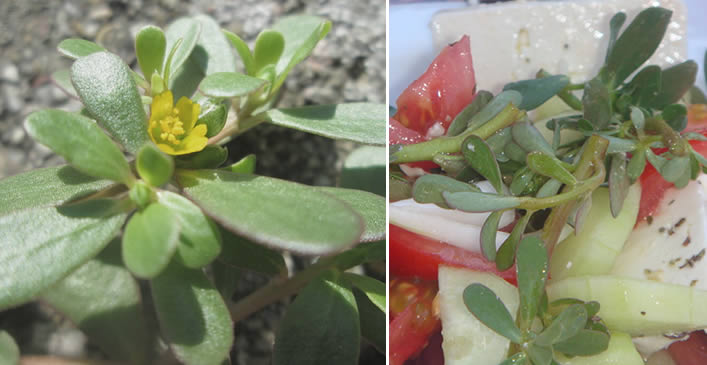The wonderful properties of purslane, how to harvest it and where to find it
Purslane is a plant that grows throughout almost all of Italy and offers dozens of health benefits. Known by various names, including porcellana and porcacchia, its scientific name is purslane oleracea .
This excellent therapeutic plant was used by our ancestors to prevent and treat numerous health conditions, such as nausea and fever. Below we list the main properties of purslane .
Heart
This plant is very rich in omega-3, which are essential for promoting the proper functioning of the cardiovascular system, lowering cholesterol and promoting blood circulation.
Diuretic
Consuming purslane facilitates urine output and general kidney function. Thanks to this property, it allows us to expel residues and harmful elements from the body.
Anti-inflammatory
The composition of the plant, rich in mucilage, also has anti-inflammatory effects and can help alleviate inflammation caused by infections.
Antiseptic and antifungal
Purslane helps block the growth of some bacteria, increasing defenses. It can also be used to fight against fungi and parasites.
Diabetes
According to recent studies, purslane could reduce blood sugar levels, being a very beneficial vegetable for those suffering from diabetes.
Anemia
Purslane’s vitamins, minerals, and amino acids may help improve the symptoms of anemia.
Antioxidant
Purslane contains compounds such as betalain, with antioxidant properties capable of reducing cellular damage and counteracting the effects of free radicals.

How to recognize and use purslane
Purslane is a spontaneous plant and, as such, it must be recognized . Purslane looks like a creeping plant, with fleshy, smooth leaves and reddish stems.
This plant can be eaten raw, alone or in salads. It is advisable to choose the youngest twigs, as they are more tender and tasty. The stem should be avoided: although edible, it is too hard and has a less pleasant flavour.
Important: This website does not give medical advice, nor does it suggest the use of techniques as a form of treatment for physical problems, for which the advice of a doctor is required. If you decide to apply the information contained in this site, it does not assume responsibility. The intention of the site is to be illustrative, not exhortative or didactic.
